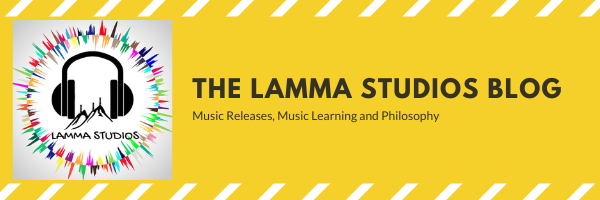Listening is a fundamental part of all communication and in music is a extremely important skill. How can we better understand and improve this essential yet poorly understood skill?
The first step is to recognize the listening as a separate skill or rather group of related skills and see the importance of the development of this skill group. The two essential skills of communication in any language are the expression of ideas and the understanding of the ideas of others. We need to have both skills. In music these two skills could be called “playing” and “listening”.
The ability to hear, understand and respond appropriately to what others play is extremely important for all musicians. Ask any good musician who they love to play with and why, many will say things like, “He has a great ear.” or “She listens and picks up on everything I do do right away.” or “It’s almost like he can read my mind.”
Those musicians are great listeners and everyone likes to play with them. Yet listening is barely taught and there seems to be very little interest in teaching this crucial skill. Ask a musician what they are practicing these days and almost all of them will talk about techniques, repertoire, licks, scales and articulation. Thinking about my experience over many years playing and hanging out with musicians, I can’t think of a single time when a musician told me they were specifically practicing listening as a top priority.
In my over 20 years of professional playing the importance of listening skills has become more and more obvious. Pretty much everyone plays well at the professional level, but the level of listening ability varies a lot. Here’s a guide to the levels of musicianship reflected by listening skills:
- Poor listeners listen mostly to themselves. They play with tunnel vision (tunnel hearing) and are slow to pick up musical details, tone, dynamics, articulation, phrasing, groove, etc.
- Better listeners listen well to their fellow musicians, and as a result play better with others in terms of rhythm, intonation, phrasing, etc. These musicians are in demand and have plenty of gigs.
- Even better listeners also listen to the whole ensemble and make the ensemble the priority. This is the kind of musician that makes a great bass player, conductor or sound engineer. Enough of this quality and your ensemble will be very good.
- Great listeners also listen to the whole hall or room and feel into to the reactions of the audience. These musicians are often very successful and famous band leaders because they are experts at connecting with the audience.
- The best listeners are magicians of a sort and can hear the music that universe wants manifested. These musicians are the ones who can change the world as they can connect with the universal creative field and bring that information down to the rest of the world. The great composers fall into this category as do the musicians who honestly make music for the greater good.
So let’s be honest with ourselves and ask: what kind of listener are we? In which situations do we listen better or worse? Are we satisfied with our listening ability? When was the last time we made a conscious decision to improve our listening abilities?
I think if many of us are honest with ourselves we will admit that our listening skills have not been given proper attention in their development. Most of us have practiced playing much much more than we have practiced listening. This is a major oversight and I am amazed at how this critical skill is so neglected by the great majority of musicians.
The good news is that since these skills are so underdeveloped by most we have an opportunity for huge improvement quickly and relatively easily. No matter what level of musician we are we can make a big improvement in ourselves as musicians and people if we improve our listening ability.
Improving our skills as musical listeners will help us in many ways. There are some huge benefits to being a better listener. Here’s a list of 9 of the most obvious benefits to improved musical listening:
Benefit #1: You will play with better rhythm, intonation, sound, emotion, ensemble and dynamics.
The better we listen the better we can clue in to the all the elements of music and improve how we fit into the music as a whole. Listening better improves intonation, rhythm, tone, dynamics, phrasing, articulation, ensemble, feel and almost everything that goes into music. And it does so effortlessly. Having trouble playing in tune? Maybe you’re just not really hearing the intonation well. So instead of painfully sitting in front of a tuner, open your ears instead! Trouble with rhythm? Maybe you just need to listen (feel) to the groove better.
Benefit #2: You will understand better your role in the ensemble and play more appropriately.
There are so many mistakes made by musicians who don’t understand their role well in an ensemble. Examples of this are brass players and guitarists who play too loudly when they don’t have the melody, and bass players playing too much when they should be just laying down the groove. If we improve listening and learn how to hear the whole ensemble, we learn how to play our parts appropriately in a way that makes the whole ensemble better.
Benefit #3: You will get more gigs and be more in demand as a player.
There’s plenty of hotshot players sitting around without gigs wondering why. This is why: They can play well but they don’t listen well enough. You see, artists that hire bands don’t want hotshots who don’t listen, they want responsive and sensitive musicians that help others around them sound good. Next time you have a gig with new people, try going with the intention of listening as well as possible instead of impressing them with your playing skills, and see what happens. You may get another call out of it.
Benefit #4: You will enjoy the music more.
Yes, listening well also improves how we enjoy the music. Isn’t that really the point, to enjoy the music? Listening better opens up the mind to more musical detail and lets us hear the whole music and not just our part. The more of the music we listen to (are aware of) the better we will enjoy the music.
Benefit #5: You will connect and communicate more deeply with the music and other musicians.
Music is a language, and the point of language is to communicate and connect us, with the other musicians, the audience, the composers, and the creative field. Improving listening improves these connections greatly. Communication and connection requires great listening.
Benefit #6: You will avoid performance anxiety.
Performance anxiety is a huge problem for many of us. Why? Because we are listening to ourselves instead of the music and asking ourselves, “How do I sound? Is it good enough? What is everyone else thinking about me?” This is a recipe for self-judgement and performance anxiety. Instead, focus on listening to the rest of the music, with no attention wasted on ourselves, and watch the results. Performance anxiety will melt away and we will turn fear into joy, and self-consciousness into confidence.
Benefit #7: You will help others play better and learn how to troubleshoot musical difficulties.
Sometimes difficulties arise in ensemble or someone else has trouble with something. So how can we fix things if we can’t hear them properly? We can’t! It would be like a mechanic trying to fix a car without looking at all the parts of the engine, or a doctor doing surgery blindfolded. When we listen better we can hear what exactly is going wrong and probably we will know better what the fix is. And if someone is struggling, we can sometimes then hear what they need from us, like a stronger groove, or help with intonation, or a different tone or dynamic.
Benefit #8: You will avoid musical selfishness.
It’s easy to become selfish as a musician when we are alone most of the time practicing and sitting around wondering why we don’t get the respect (and gigs) we deserve. There’s so much selfishness in the world and it’s seen in the musical world as well. If we improve our listening we open up to others, we play more collaboratively and from that comes respect and admiration from colleagues and audiences. Great musicians see and hear the big picture, not just their own part.
Benefit #9: You will open the door to feeling musical energy and the spiritual power of music.
There’s so much in the music if we open our ears and our hearts and minds to it. Improving listening is just one step down the road of musical development. As we improve our listening we begin to realize there’s a lot more there than just the sound waves and notes. There’s great feeling and connection to much deeper feelings of spirit. When we open our ears the other more subtle sense organs will begin to unfold, and we will begin to build awareness of another whole world in the music.
Convinced yet? Do you want to make improving listening a priority? There’s lots of easy ways to get started, and although they aren’t often taught, it’s easy enough to get started. The best way to get started is to set an intention to improve our listening skills. That intention alone will set a transformation in motion that over time will make a huge difference.
The more I think about this topic the bigger I see it is, as a important principle for the musical world and humanity at large. Perhaps “listening” isn’t even the right word, as it’s more than a auditory skill. Going forward “musical awareness” may be more accurate of a term.
I hope this article helps inspire someone to improve their listening skills. In a way all we really need is the intention to improve as a listener and we will begin to improve. However this skill can also be practiced. Please contact me if you’re interested in coaching in these essential yet poorly understood skills.


